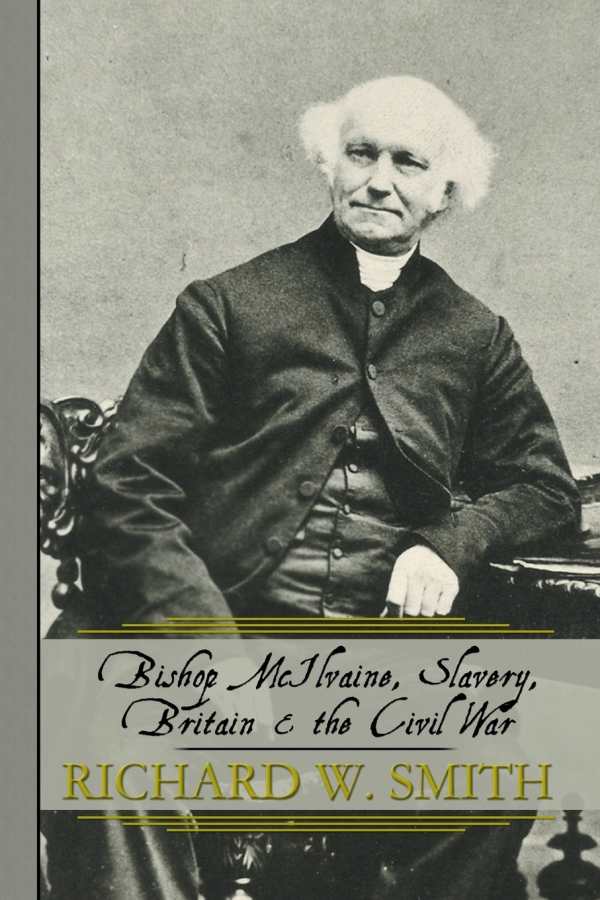Bishop McIlvaine, Slavery, Britain & the Civil War
Thorough and academic, this biography describes a Civil War hero who fought his battles with words.
Episcopal Bishop Charles Petit McIlvaine isn’t a common name in history textbooks. This American historical figure was most influential in Great Britain, where he used keen political reasoning to sway British leaders away from supporting the rebellious American South. However, even on his native soil, McIlvaine’s voice contributed to the many-part chorus of opinions that accompanied the Civil War. Both before and after the commencement of hostilities, he helped to direct public sentiment toward the North and abolition. Bishop McIlvaine, Slavery, Britain & the Civil War by Richard W. Smith details McIlvaine’s life and activities, illuminating the effect that this clergyman had on an America in transition.
In contemporary discussions of the Civil War, focus on contributing social factors seems too rare. This book does an excellent job depicting the pervasiveness of social unrest prior to the war, and of Britain’s interest in the discord. In such discussions, the clearest focal point is slavery. The extent to which the Civil War was fought in social and diplomatic circles is another prevailing theme.
Smith spends a great deal of time discussing the evolution of evangelical Protestant churches in the U.S., a movement of which McIlvaine was also a part. Scholars of the era will find McIlvaine a useful window through which to view religious and social transformation during the mid 1800s.
The book is meticulously detailed, but avoids excessive analysis or conjecture. It is hard to imagine a more complete work on the subject, lending it value as a research tool. Voluminous information about McIlvaine gives the impression that the clergyman has been unjustly ignored by history.
However, stylistically, the book often comes across as flat, a direct rendering of events rather than an engaging one. Still, the events themselves are interesting, and McIlvaine’s life presents an unusual perspective that may intrigue scholars who are already very familiar with the Civil War. Professors and serious students of American history will find much of interest in the book, even if they haven’t heard of McIlvaine before. Casual Civil War aficionados, however, might find it dense. Strong familiarity with the circumstances and people involved with the war eases comprehension.
As part of an expanded understanding of the tempestuous Civil War period, Bishop McIlvaine stands to be of great use. It performs a historical service by highlighting the man who may have singlehandedly prevented Great Britain from aiding the South. Historians and serious amateurs will appreciate the exhaustive nature of the research and the wealth of bibliographical notes.
Reviewed by
Anna Call
Disclosure: This article is not an endorsement, but a review. The publisher of this book provided free copies of the book and paid a small fee to have their book reviewed by a professional reviewer. Foreword Reviews and Clarion Reviews make no guarantee that the publisher will receive a positive review. Foreword Magazine, Inc. is disclosing this in accordance with the Federal Trade Commission’s 16 CFR, Part 255.

